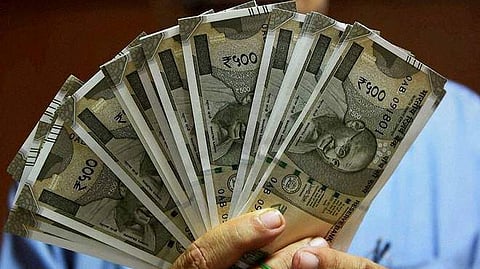

MUMBAI: The eighth pay commission award, to be effective January 2026, for Central government employees and pensioners, will lead to a USD 50 billion consumption and savings boost for the economy with no impact on the fiscal metrics as the higher income will have led to more savings.
In mid-January, the Centre had announced the formation of the eighth pay commission which is mandated to revise the salaries, perks and pensions for Central government workers and pensioners. The pay awards, which will benefit around 3.1 crore people, will be effective January 1, 2026, the notification said.
The country is likely to witness a USD 50-billion (Rs 4.5 trillion at the current exchange rate) consumption and savings boost thanks to the wage revision for Central government employees and pensioners effective January 2026. Around 3.1 crore people are expected to benefit, Swiss brokerage UBS Securities has said in a report, which also said the salary, perks and pension hike “will have a stable impact on the fiscal position, favoring savings over consumption.”
According to UBS, “the new central pay commission pay hike will shape the country’s economic trajectory from 2026-28, with around 3.1 crore people—1.8 crore government employees and 1.3 crore Central government pensioners—standing to benefit.”
The brokerage expects the hike to boost savings more than consumption, while keeping the fiscal position stable, with the government focused on macro stability and investment-led growth.
The brokerage cites three scenarios in its impact assessment. Its base case scenario assumes a 15-20% increase, less than the 24% recommended last time, raising wage bill by USD 50 billion or Rs 4.5 trillion, without disrupting macro forecasts. A 20-25% hike could briefly boost GDP growth but push interest rates up. A steeper 40-45% increase could weaken the already battered rupee, spike inflation, force the central bank to hike repo rate and initially accelerate but later dampen GDP growth.
Given that many states also pay their staff and pensioners on par with the Central pay, the net impact would be much higher as the total number of people benefitting will be much higher. The UBS report is silent on this aspect, though.
Just the top four states in terms of government employee burden on the exchequer—UP, Maharashtra, Tamil Nadu and Kerala—have collectively employed 65 lakh people, while all states together employee over 20 million. Uttar Pradesh has the highest number of government employees and pensioners at 27 lakh, followed by Maharashtra (17 lakh), Tamil Nadu (16 lakh government employees and pensioners) and Kerala 5 lakh.